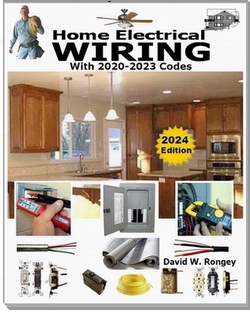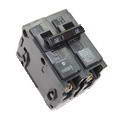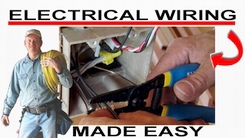» Circuit Breakers and Fuses
» Need Electrical Help? Ask the Electrician
Fuses and Circuit Breakers
|
|
Summary: All about fuses and circuit breakers and how they have evolved over the years and are used to protect your home electrical system.
© By: Dave Rongey |
Fuses and Circuit Breakers for the Home Electrical System
Fuses have been around for a long time, and there are still electrical systems today that are protected using certain types of fuses. Modern house wiring methods today do not include older fuses, in fact rewiring older homes and replacing the old fuse box is always recommended. Just like the older screw based fuses, electrical circuit breakers conveniently protect our home electrical wiring circuits and rarely wear out unlike the one time fuses that needed to be replaced when the circuit became overloaded.
The History of Fuses and Circuit BreakersHow fuses and circuit breakers can be helpful for your home. |
|
|
The Edison Screw Based Fuse A typical older home had an electrical panel with a few circuits that were protected by screw based fuses. Although this type of protection was reliable, the circuit integrity was often compromised by easily installing an oversized fuse which often lead to overheated circuit wiring and caused many house fires. |
|
|
Screw Based Circuit Breakers One improvement in screw based fuses was this push button circuit breaker. This push button circuit breaker style fuse eliminated the need of having to replace a burnt out fuse. Other improvements were fuses that had a mechanical time delay that would prevent the fuse from blowing when the circuit had a sudden surge of electrical current due to larger devices such as a refrigerator. |
|
|
Electric Panel with Cartridge Fuses and Screw Base Fuses The home electrical system began to see larger circuits which required more protection which was provided by cartridge fuses. These fuses have been used as the main electrical service protection being enclosed in a pull-out assembly that also served as a service or circuit disconnect. It was common to see two of these cartridge fuse disconnects, one for the main electrical service typically 60 amps 240 volts, and one 30 amp 240 volt circuit for a large circuit such as a well pump or a circuit to a barn or out building. |
|
|
Cartridge Fuses for Large Electrical Circuits Cartridge fuses are still used today for larger electrical circuits for equipment such as an air conditioner. Typically cartridge fuses are found on 240 volt circuits that require a disconnect to be close to the equipment enabling the power to be turned off while the equipment is being serviced. |
|
|
Modern Day Circuit Breakers For several years, the modern switch style circuit breaker has been used to protect all the electrical circuits for a modern home. These circuit breakers come in a wide range of amperage ratings and are used for 120 volt and 240 volt circuits. These circuits are know as single pole, double pole and three pole circuits which are found in commercial and industrial electrical services. |
|
More about Fuses and Circuit Breakers |
|
Question: Answer: Its always a great idea to speak to the inspector who is assigned to your permit - they are usually very open to your questions and will usually help you out very nicely. A great attitude towards them will typically produce a great attitude back to you.When remodel work is taking place inside the home, then the building department will require those affected areas to be brought up to code.If you are planning to do additional work inside the home later on, make sure to think ahead and pre-wire for any circuits which will be needed. These can always be placed in the attic or crawl space in a junction box where they can be capped off and identified for future , the same back at the panel. NOTE: |
|














